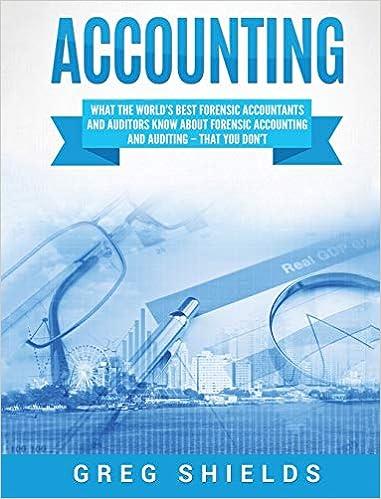Question
1) Dodd-Frank called for rules that require an issuer to disclose in the annual proxy sent to investors the reasons why the issuer has chosen
1) Dodd-Frank called for rules that require an issuer to disclose in the annual proxy sent to investors the reasons why the issuer has chosen either (1) the same person to serve as chairman of the board of directors and chief executive officer (or in equivalent positions); or (2) different individuals to serve as chairman of the board of directors and chief executive officer (or in equivalent positions of the issuer). Think through this - which of the following is the least important reason for separating the two functions and filling them with different individuals:
a) It is the board of directors that votes to approve and increase executive pay. When the CEO is also the chairman, a conflict of interest arises, as the CEO is voting on his or her own compensation.
b) One large annual salary can be eliminated.
c) A board led by an independent chairperson is more likely to identify and monitor areas of the company that are drifting from its corporate strategy, and to put into place corrective measures to get it back on track.
d) When the board is led by management, employees may be less likely to report activities such as fraud, and the audit committee may be less likely to act on such reports.
2. To promote market discipline, by eliminating expectations on the part of shareholders, creditors, and counterparties of such companies that the Government will shield them from losses in the event of failure
a. To respond to emerging threats to the stability of the United States financial system
b. To identify those corporations who ongoing solvency is so critical to national security that they are classified as too big to fail
c. To identify risks to the financial stability of the United States that could arise from the material financial distress or failure, or ongoing activities, of large, interconnected bank holding companies or nonbank financial companies
d. Increased audit fees.
3. Which of the following statements is true?
a. An external audit can be performed by anyone with an accounting degree.
b. An external audit is required for any company with annual revenues greater than $5 million.
c. An external audit is designed to prove that the financial statements are wrong.
d. An external audit must be performed by an independent, public accounting firm.
Step by Step Solution
There are 3 Steps involved in it
Step: 1

Get Instant Access to Expert-Tailored Solutions
See step-by-step solutions with expert insights and AI powered tools for academic success
Step: 2

Step: 3

Ace Your Homework with AI
Get the answers you need in no time with our AI-driven, step-by-step assistance
Get Started


